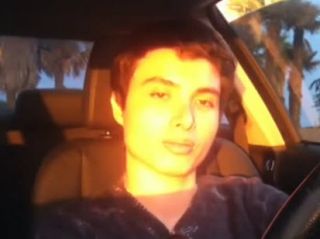Suicide
Revisited: Why Are Spree Killers Mostly Men?
Elliot Rodger's Manifesto and the Ultimate Motivations of Rampage Killers
Posted February 8, 2015
Back in 2012, shortly after the Sandy Hook Massacre, I wrote a blog post titled Running Amok: Why Are Virtually All Spree Killers Men? In that post I explored what might motivate spree killers, and, why the great majority of them are males.
A couple of years later, on May 23, 2014, Elliot Rodger went on a killing spree in Isla Vista, California. Like everyone, I was deeply shocked by his actions. I had lived in Isla Vista myself during my graduate studies at UCSB. Also, my 2012 post seemed surprisingly prescient about the motives that Elliot Rodger shared with other spree killers. In his written manifesto, Rodger's had left behind the psychological equivalent of an important archaeological dig.
Below, I will briefly review portions of my 2012 blog post with what Rodger wrote in his personal manifesto. At times, the ultimate reasons given in the blog post about underlying spree killers' motives, and Rodger's expressed proximate emotions and motivations, were shockingly consistent.

Reproductively Disenfranched Males / Sexual Rejection
Blog post: "Spree killings often follow a personal rejection by a female(s), and, the perception that more rejections are likely to follow...." Daly and Wilson (1988, p. 280): "The most common precipitating events are difficulties with wives or girlfriends, losses of face, and losses of money..."
Rodger: "Since I hit puberty, I've been forced to endure an existence of loneliness, rejection and unfulfilled desires, all because girls have never been attracted to me. Girls gave their affection and sex and love to other men, never to me.... All those girls I've desired so much. They have all rejected me and looked down on me as an inferior man if I ever made a sexual advance toward them..."
Social ostracism
Blog post: "(Spree killers often feel) that their future prospects are extremely bleak, they feel ostracized and isolated... "
Rodger: "All those popular kids who live such lives of hedonistic pleasure while I've had to rot in loneliness all these years. They all look down upon me every time I tried to join them, they've all treated me like a mouse."
Failure in intra-sexual competition.
Blog post: "Our psychological adaptations are designed to not just "keep up with the Joneses" but to genetically "do better than the Joneses." "
Rodger: "And (I hate) all you men, for living a better life than me. All of you sexually-active men. I hate you."
Desire for retribution to the perceived out group.
Blog post: "In ancestral environments, being ostracised or ejected from one's tribe could amount to a death sentence. Exacting retribution against the perceived injustice of group ostracism may also be a contributing motive. Daly & Wilson, 1988, p 280: 'The young man who runs amok is typically residing far from home, often for the first time in his life. He has typically been brooding over failure. One cannot but wonder if his psychology is that of a doomed warrior, surrounded by enemies and determined at least to inflict some costs upon them.'"
Rodger, from his manifesto: "I am not part of the human race. Humanity has rejected me. The females of the human species have never wanted to mate with me, so how could I possibly consider myself part of humanity? Humanity has never accepted me among them... Humanity struck at me first... I didn't want this war. ...But I will finish it by striking back. I will punish everyone."
Rodger, from his video: "Humanity is a disgusting, wretched, depraved species. If I had it in my power I would stop at nothing to reduce every single one of you to mountains of skulls and rivers of blood and rightfully so. ...You deserve to be annihilated and I will give that to you. You never showed me any mercy so I will show you none."
Suicide (or "suicide by cop")
Blog post: "...spree killings most often end with suicide (or "suicide by cop"). One evolutionary theory of suicide is that it is more likely to occur when a person feels that their future prospects are extremely bleak, they feel ostracized and isolated, and they perceive that they are a net burden on genetic relatives (thus reducing their relatives' inclusive fitness). Several factors may help to provide ultimate (evolutionary) explanations for the higher rate of male suicide: (a) male paternity uncertainty, noted above, may result in males feeling less of a connection to putative genetic relatives, and (b) more males than females are at the lower end of the reproductive variance distribution (i.e., "reproductively disenfranchised") such that their perceived future prospects are dismal."
Rodger: "To end my life, I will quickly swallow all of the Xanax and Vicodin pills I have left, along with an ample amount of hard liquor. Immediately after imbibing this mixture, I will shoot myself in the head with two of my handguns simultaneously."
After Rodger crashed into a parked car, and it was clear that his killing spree had come to an end, Rodger shot himself in the head.
Chilling.
What can we learn?
Evolutionary (or ultimate) analyses of behavior can help us to understand phenomena, such as spree killing, that otherwise would continue to profoundly baffle us. It can help to explain why certain behaviors are vastly more common in one sex than the other -- even if the behavior is extremely rare -- because they are due, in part, to underlying sexually dimorphic psychological adaptations.
Also see:
Running Amok: Why Are Virtually All Spree Killers Men?
Which Sex is Playing a Higher Stakes (Reproductive) Game?
The "Precarious Manhood" of the Santa Barbara Shooter: Why is it almost always young men who go on violent rampages? by Frank T McAndrew Ph.D.




